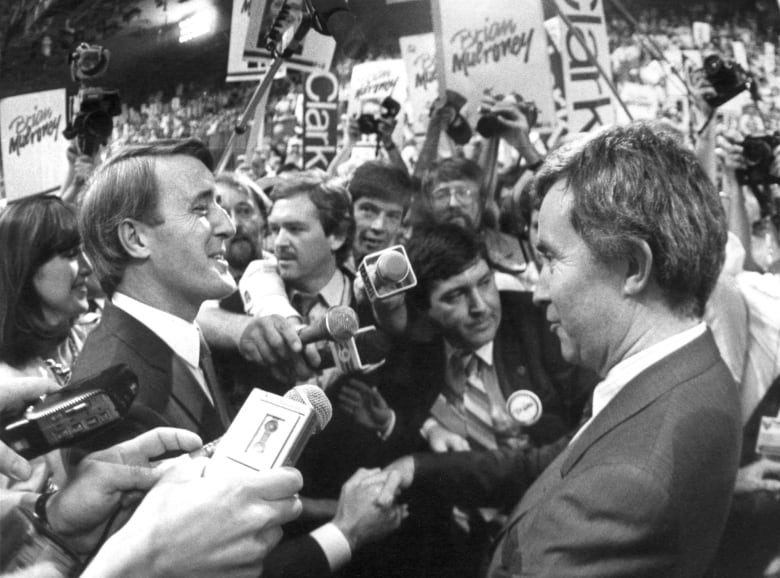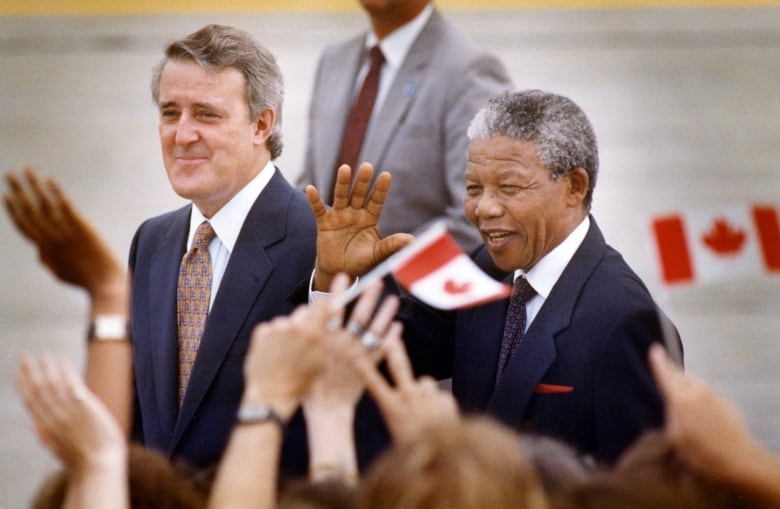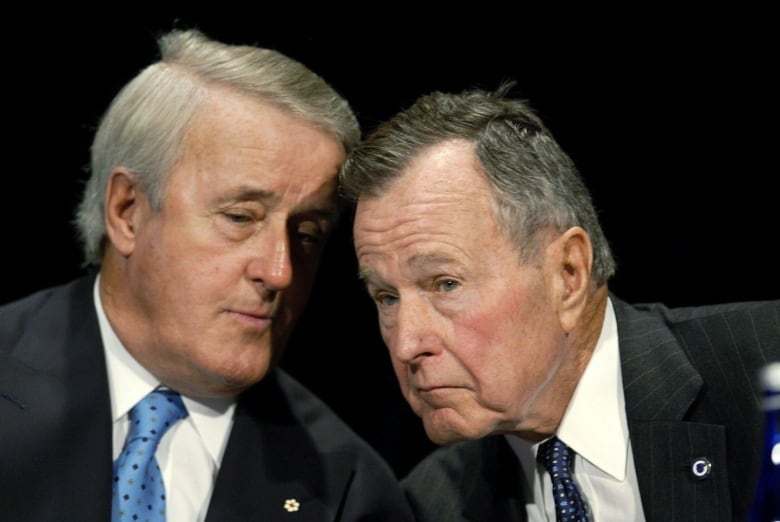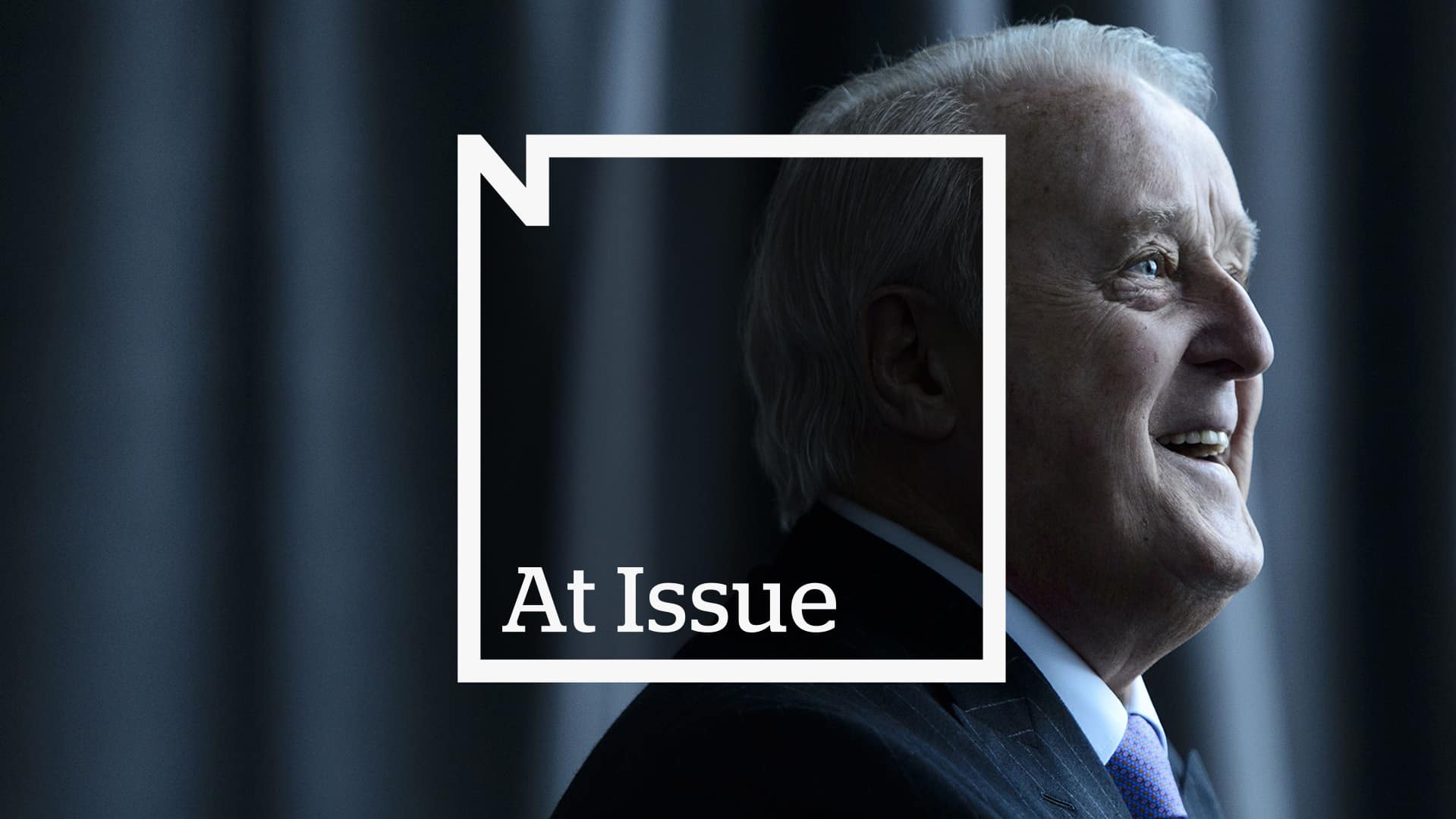Prime Minister Justin Trudeau said Friday the state funeral for the late Brian Mulroney will be a “right and fitting tribute” for a titan of Canadian politics.
Mulroney, Canada’s 18th prime minister, died peacefully surrounded by his family, his daughter Caroline Mulroney said Thursday. A family spokesperson said Mulroney died in a Palm Beach hospital, where he’d been since a recent fall.
“He marked the history of this country, he marked the present of this country and it is right that we all are reflecting on him and his family today and for many days to come,” Trudeau said Friday morning.
The prime minister said planning is underway for a state funeral, a special public event reserved for eminent Canadians, including former prime ministers.
“We’re working with the family closely to ensure that all of their wishes are respected and that it be the right and fitting tribute to him,” said Trudeau.
Trudeau said there also will be opportunities for the public to offer their condolences.
Flags are flying at half-mast on government buildings, including the Peace Tower in Ottawa, and a book of condolences has been set up for members of Parliament to sign.
“Canada is in mourning,” said Liberal House leader Steve MacKinnon.
Mulroney, a charismatic leader from Baie-Comeau, Que., led the country and the Progressive Conservatives from 1984 to 1993.
Mulroney pursued politics in a way that earned him devoted supporters — and equally passionate critics. He’s remembered as gifted public speaker with a unmistakable baritone, and a skilled politician.
Looking back at the legacy of Brian Mulroney, a former prime minister who is remembered for the humanity of his politics and his willingness to tackle big issues, as well as major — and divisive — moves on taxes and trade.
As prime minister, he improved Canada’s relationship with the U.S while brokering a free trade deal. Through his close friendship with U.S. President Ronald Reagan, he pushed for an acid rain treaty to curb the sulfur dioxide emissions that were destroying waterways and signed a North American air defence modernization agreement to better protect the continent from a ballistic missile attack.
Domestically, he pushed for constitutional reforms to secure Quebec’s signature on Canada’s supreme law — an effort he defended as a way to unite Canada from the separatist movement, but which ultimately failed.
He also introduced a national sales tax to raise funds against ballooning budget deficits, privatized some Crown corporations and stood strongly against racial apartheid in South Africa.
Despite being dogged by corruption allegations after leaving politics, he worked to rehabilitate his legacy and was known to provide advice to a new generation of politicians.
‘A happy warrior’
News of Mulroney’s death led to a flood of condolences and personal anecdotes from across the political spectrum and around the world.
Former Progressive Conservative prime minister Joe Clark, who served from 1979-1980, called it “a great loss to the country.”
“He sympathized, I think it’s fair to say, with other governments dealing with tough problems. He gave advice to them from from time to time. But in my experience with him, he was not despondent,” Clark told CBC’s As it Happens.
“He was a very cheerful, forward-looking person. Tough sometimes, obviously he was involved in conflicts as well as successes, but I think that he would have wanted to be remembered as a happy warrior, and I think he was a happy warrior.”

Mulroney dethroned Clark as leader of the Progressive Conservatives during the 1983 leadership convention, riding on the strength of his support among delegates from Quebec.
Still, Clark said he was always an admirer of Mulroney’s vision.
“Despite our occasional differences,” Clark said with a laugh, “I had the greatest admiration for his contribution to our country.”
As It Happens7:43Brian Mulroney’s death is ‘a great loss to the country,’ says former PM Joe Clark
Former prime minister Joe Clark talks to As It Happens host Nil Köksal about the life and legacy of Brian Mulroney, Canada’s 18th prime minister, who died on Thursday at the age of 84. “Despite our occasional differences,” Clark said with a chuckle, “I had the greatest admiration for his contribution to our country.”
Former Liberal prime minister Jean Chrétien, who faced off against Mulroney before he exited politics, noted his former political rival was involved “in many controversial files.”
“It’s better to be involved than not to be involved,” he said.
‘May his soul rest in peace’
Early in his time in office, Mulroney launched an aggressive push within the Commonwealth for sanctions to pressure the South African government to dismantle apartheid, its racist caste system, and to release Nelson Mandela from prison, where he had been locked up for a quarter century.
In a media statement, South African President Cyril Ramaphosa said Mulroney “holds a special place in South Africa’s history.”

“During his term, he spoke out against apartheid, advocated the economic isolation of the regime and took a stand when many in the international community were wavering,” he said.
“For us, his passing is made profound by the fact that we have lost this friend and ally in the year in which we are marking 30 years of freedom and in which we pay tribute to all those around the world who supported our struggle for freedom and democracy. May his soul rest in peace.”
U.S. President Joe Biden also praised Mulroney’s anti-apartheid advocacy.
“Mulroney was fearless and not afraid to stand up for causes he cared about, like advocating against racial apartheid in South Africa,” he wrote.
“I got to know the prime minister when I served on the Senate Foreign Relations Committee. I saw firsthand his commitment to the friendship between our two nations.”

In a statement published on social media, former U.S. president George W. Bush said Mulroney was “charming, fun and kind.”
“He developed a very close friendship with my dad,” said Bush, referring to the eulogy Mulroney delivered at former president George H.W. Bush’s state funeral.
We send our deepest condolences to the 18th Prime Minister of Canada Brian Mulroney’s family and the people of Canada on his passing.<br><br>Ukrainians will always remember that Brian Mulroney’s government was the first in the Western Hemisphere to recognize Ukraine’s independence in…
—@ZelenskyyUa
Mulroney also eulogized former president Reagan.
Ukrainian President Volodymyr Zelenskyy, whose country is waging a bloody war to push back Russia’s invasion, took time to remember Mulroney’s impact on Ukrainians.
“Ukrainians will always remember that Brian Mulroney’s government was the first in the Western Hemisphere to recognize Ukraine’s independence in 1991. This laid a solid foundation for Ukraine and Canada to continue their true friendship,” he wrote on social media.




